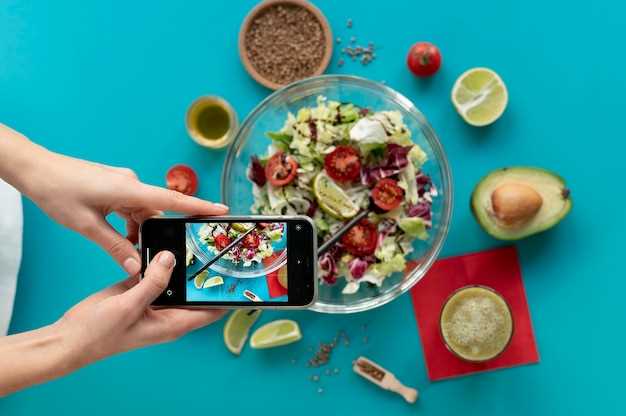
Have you ever wondered how certain medications can interact with your meals? In this enlightening section, we delve into the fascinating connection between what you eat and the effects of a widely prescribed medication, without specifically mentioning the name “Propranolol” or its interactions with food. Prepare to explore the intriguing interplay between certain substances and the way they may impact the efficacy of your medication.
Uncover the Secrets of Nutritional Influences
Did you know that the items on your plate can potentially alter the way medications work within your body? Discover the subtle, yet significant, effects that nutrients, beverages, and even seemingly harmless condiments can have on your medication’s absorption, metabolism, and overall effectiveness. Gain an understanding of how these interactions can either enhance or hinder the therapeutic benefits of your treatment, allowing you to make informed decisions about your dietary choices.
Unlocking the Hidden Potential
As you embark on this informative journey, be prepared to unearth hidden food-drug interactions that could potentially optimize the positive impact of your medication. By better understanding the intricate relationship between what you eat and how it relates to your treatment, you can potentially harness the full potential of your medication, leading to improved well-being and a more harmonious integration of your dietary habits with your medical regimen.
What is Propranolol?
Propranolol is a medication that falls under the category of beta-blockers. It is commonly prescribed to manage various conditions such as high blood pressure, heart rhythm disorders, and anxiety. As a non-selective beta-blocker, it works by blocking certain receptors in the body, which helps to regulate heart rate and blood pressure.
Understanding the importance of Propranolol interactions is crucial for individuals who are prescribed this medication. Different substances, including food, can significantly affect the absorption and effectiveness of Propranolol in the body. It is essential to be aware of these interactions to ensure optimal results and avoid any potential complications.
The Significance of Understanding Propranolol Interactions
There are various factors that can influence the way Propranolol is absorbed and utilized by the body. Interactions with certain foods can either enhance or hinder the effectiveness of the medication. Understanding these interactions can help individuals maintain consistent blood levels of Propranolol and achieve the desired therapeutic outcomes.
By comprehending the significance of Propranolol interactions, individuals can make informed decisions regarding their diet and medication management. This level of understanding enables patients to collaborate effectively with their healthcare providers and make necessary adjustments in their treatment plans.
Moreover, being aware of Propranolol interactions can also prevent potential adverse effects. It is essential to avoid certain types of food that may negatively impact the medication’s absorption and efficacy. Understanding which foods to avoid can help individuals optimize the benefits of Propranolol therapy and minimize the risk of any unwanted side effects.
To provide a comprehensive overview of Propranolol interactions with food, the following sections will discuss the effect of food on Propranolol absorption and provide guidance on the types of food to avoid. This information will empower individuals to make informed choices about their diet while taking Propranolol and ensure the medication’s optimal effectiveness.
Table: Common Types of Food to Avoid with Propranolol
| Type of Food | Impact on Propranolol Absorption |
|---|---|
| Grapefruit | May increase Propranolol levels in the blood, leading to potential adverse effects. |
| High-fat meals | Can delay the absorption of Propranolol, resulting in decreased effectiveness. |
| Caffeine | May increase heart rate and blood pressure, counteracting the effects of Propranolol. |
| Alcohol | Can enhance the sedative effects of Propranolol, leading to excessive drowsiness or dizziness. |
Importance of Understanding Propranolol Interactions
It is crucial to have a comprehensive understanding of the impact that certain substances can have on the effectiveness of medication. One such medication that necessitates careful consideration in this regard is Propranolol, a commonly prescribed medication. Familiarizing oneself with the potential effects of consuming specific types of food while taking Propranolol is essential for maximizing its benefits.
As individuals consume various types of food, they may unknowingly interact with Propranolol in different ways. These interactions can potentially influence the absorption and overall effectiveness of the medication. Therefore, it becomes imperative to identify and avoid certain food items that can hinder the optimal absorption of Propranolol.
Understanding the relationship between Propranolol and food is particularly important to ensure consistent therapeutic outcomes. Certain food substances have the potential to either enhance or limit the absorption of Propranolol, which can affect its overall efficacy. By avoiding specific types of food that are known to interfere with the medication, individuals can maintain a stable and efficient level of Propranolol in their system.
Moreover, being aware of the food interactions with Propranolol can significantly contribute to better adherence and a more successful treatment regimen. By making informed choices and avoiding particular food items that may compromise the effectiveness of the medication, individuals can optimize the desired therapeutic outcomes and ultimately improve their overall well-being.
Understanding the effect of food on the absorption of Propranolol allows individuals to have more control over their treatment plan. This knowledge empowers them to make informed decisions regarding their dietary choices while taking Propranolol, ensuring that they are maximizing the benefits of the medication and minimizing any potential risks or adverse effects.
By acquiring a comprehensive understanding of the types of food that can potentially interact with Propranolol and hinder its absorption, individuals can proactively manage their treatment and achieve the desired therapeutic results more effectively. Making mindful choices regarding food consumption can significantly contribute to the overall success of Propranolol therapy and promote a healthier lifestyle.
Effect of Food on Propranolol Absorption

Food can significantly influence the way medication is absorbed and utilized by the body. When it comes to a certain medication, it is crucial to understand how different types of food can affect its effectiveness. In the case of Propranolol, the interaction between this medication and food is noteworthy and should be taken into consideration.
Some individuals find that certain foods can either enhance or hinder the absorption of Propranolol. Understanding the effect of food on the absorption process can help individuals optimize their treatment and ensure its effectiveness.
- High-fat meals: Consuming a high-fat meal before taking Propranolol can result in delayed absorption. This is because the presence of excessive fat in the digestive system can slow down the rate at which the medication is absorbed into the bloodstream. It is advisable to avoid consuming heavy, fatty meals before taking Propranolol to ensure a timely absorption rate.
- Acidic foods: Foods and beverages with high acidity levels, such as citrus fruits or juices, can interfere with the absorption of Propranolol. The acidic environment in the stomach can potentially alter the medication’s stability, making it less effective. It is recommended to avoid consuming acidic foods or drinks right before or after taking Propranolol.
- High-fiber foods: High-fiber foods, such as whole grains and legumes, can slow down the absorption of Propranolol. These foods can take longer to digest, resulting in delayed medication absorption. It is advisable to schedule the consumption of high-fiber foods at least a few hours before or after taking Propranolol to minimize any potential interactions.
By being aware of how different foods can impact the absorption of Propranolol, individuals can make informed choices about their diet and optimize the effectiveness of their medication. It is always recommended to consult with a healthcare professional or pharmacist for personalized advice regarding the timing and composition of meals when taking Propranolol.
Effect of Diet on Propranolol Absorption

Understanding the impact of diet on the absorption of medication is crucial for optimizing the effectiveness of your treatment. When it comes to Propranolol, the food you consume can affect how this medication is absorbed by your body.
Eating Habits and Medication Efficacy
Your eating habits play a significant role in the absorption of Propranolol and its subsequent effect on your body. Certain foods and drinks may influence the rate at which Propranolol is absorbed into your bloodstream, potentially affecting its overall efficacy.
In general, a balanced and consistent diet can help maintain a stable concentration of Propranolol in your body. It is important to avoid sudden spikes or drops in the levels of this medication, as it could impact its ability to effectively control your condition.
Factors Affecting Propranolol Absorption
The absorption of Propranolol can be influenced by several factors related to your diet. The presence of certain nutrients, such as fats, in your meal can affect the rate at which Propranolol is absorbed. Additionally, the timing of your meal in relation to taking the medication can also impact its absorption.
Consuming a high-fat meal, for example, may slow down the absorption of Propranolol, while consuming a low-fat meal or taking the medication on an empty stomach may enhance its absorption rate. Timing your meals appropriately and making conscious choices about the composition of your diet can play a crucial role in maximizing the benefits of Propranolol.
It is essential to consult with your healthcare provider to determine the best dietary practices for your specific condition and to ensure optimal absorption and efficacy of Propranolol.
In conclusion, understanding and managing the effect of diet on Propranolol absorption is an important aspect of your treatment plan. By adapting your eating habits and making informed choices, you can enhance the effectiveness of Propranolol and improve the management of your condition.
Types of Food to Avoid
When it comes to taking any medication, it’s important to be aware of the potential effects of certain foods on its absorption and overall effectiveness. In the case of Propranolol, there are particular types of food that should be avoided to ensure the best possible outcomes from your treatment.
Firstly, it is recommended to steer clear of high-fat meals when taking Propranolol. Consuming foods that are high in fat content can significantly slow down the absorption of the medication into your body, resulting in a delayed onset of its effects. It is best to opt for low-fat options or to avoid heavy meals altogether when taking Propranolol.
In addition to high-fat foods, it is also advisable to avoid consuming grapefruit or drinking grapefruit juice while taking Propranolol. Grapefruit contains certain compounds that can interfere with the way your body processes the medication, potentially altering its effectiveness. Therefore, it is best to avoid this citrus fruit and its juices during your treatment.
Furthermore, it is important to be cautious with the consumption of certain types of caffeine-containing beverages or foods. While moderate amounts of caffeine are generally safe, excessive intake can amplify the potential side effects of Propranolol, such as dizziness, fatigue, or a rapid heartbeat. Keeping your caffeine intake in check or opting for decaffeinated alternatives can help ensure a smoother experience with your medication.
Lastly, it is wise to be mindful of the timing of your meals when taking Propranolol. Ideally, it is recommended to take the medication either one hour before meals or two hours after meals. This schedule allows for optimal absorption and minimizes the potential interactions between Propranolol and food.
- Avoid high-fat meals
- Avoid grapefruit or grapefruit juice
- Be cautious with caffeine intake
- Consider the timing of meals
By being aware of the types of food to avoid while taking Propranolol, you can maximize the effectiveness of your treatment and ensure the best possible results for your health and well-being. Always consult with your healthcare provider or pharmacist for personalized advice and guidance on your medication and dietary requirements.
